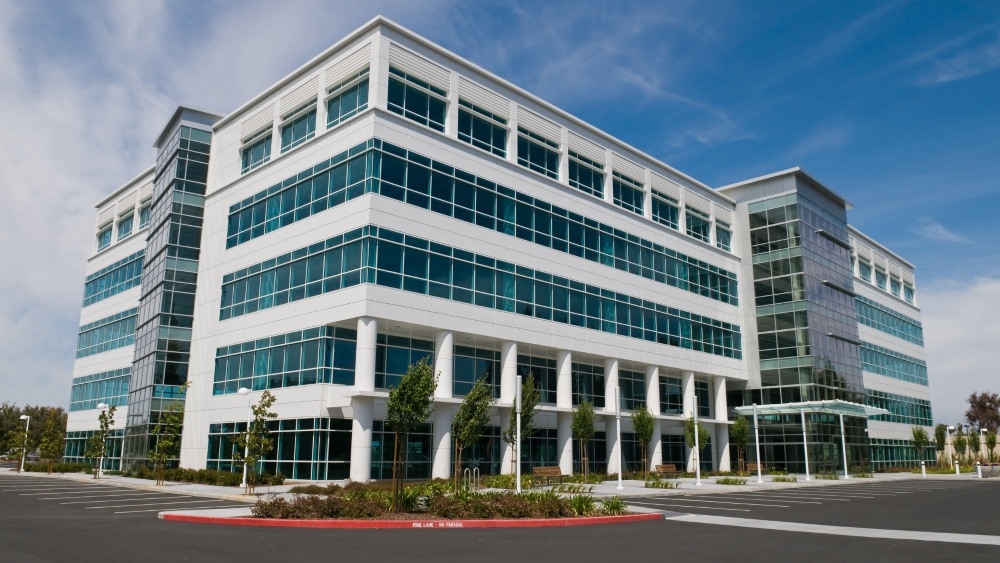Everything You Need to Know About Insurance for Commercial Real Estate Businesses
Table of Contents
1. Why Does a Commercial Real Estate Business Need an Insurance Advisor?2. What Should a Commercial Real Estate Business Look for in an Insurance Advisor?
3. Why Is it Important to Choose an Advisor That Specializes in the Commercial Real Estate Industry?
4. What Should Our Commercial Real Estate Business Expect When Working with an Insurance Advisor?
5. What Insurance Coverages Are Most Important for Commercial Real Estate Businesses?
6. Are There Common Pitfalls When Buying Insurance for a Commercial Real Estate Business?
7. How Can an Insurance Advisor Help our Commercial Real Estate Business with Claims?
8. Why is B. F. Saul Insurance the Right Advisor for Commercial Real Estate Businesses?
A convergence of macroeconomic and industry-specific trends is making it more complex than ever for commercial real estate businesses to obtain the right insurance at an affordable price.
The market for commercial property insurance is especially difficult, as a rise in storm frequency and severity continues to drive up claims volume and insurer losses. Most commercial property owners and management companies have watched their property insurance rates and deductibles skyrocket in response to rising claims and insurance industry losses. With named storm deductibles now extending beyond the traditional hurricanes—including Nor’easters and other weather events—commercial property businesses are facing much higher out-of-pocket costs in the event of a covered loss. For properties with anything but a spotless claims record, it can be difficult just to secure adequate coverage at any price. Owners that take on major renovations often find that the existing property insurer doesn’t want to stay on if the building is under renovation, while many insurers don’t want to cover the property and the renovation work at the same time. And for property investors looking to capitalize on declining commercial property valuations in some markets, obtaining coverage for newly purchased assets can become a lengthy and difficult process.

Trends like these are driving up commercial property exposures and making it more challenging and more expensive to secure the right coverage to protect the property and the business’s assets. And that makes the guidance of an independent insurance advisor invaluable. An independent broker will keep you apprised of what’s happening in the market, get to know your business and your risks intimately, and leverage their access to the broad insurance market to help you obtain the right coverage to protect your assets. Your insurance advisor will structure a solution from the best possible options, often packaging various policies to ensure you avoid costly coverage gaps.
When you’re selecting an independent insurance advisor to help protect your commercial real estate assets, it’s important to consider the company’s ownership and structure. A private equity-owned insurance advisor is likely to focus on their own financial objectives, which can jeopardize the quality of their service. A financial backer will encourage the advisor to hit certain financial targets and is often unwilling to invest in the people, systems, and other resources it takes to provide the level of service their clients expect and deserve. On the other hand, a privately-owned independent broker operates free of those pressures, enjoying the control and autonomy to make decisions that best serve their clients’ interests.
The caliber and tenure of an independent advisor’s staff are equally important considerations. It’s best to partner with an advisor with a deep bench of highly knowledgeable professionals who have extensive experience in commercial insurance. While you might be impressed with the senior staff members who pitch your business, always ask who you’ll work with ongoing to ensure you’ll get the full benefit of the firm’s expertise.
Additionally, most clients find it valuable to work with an insurance advisor that specializes in their industry. An advisor that understands the complexities and nuances of the commercial real estate sector will be best equipped to help you navigate the insurance landscape and offer practical solutions that reduce risk.
B. F. Saul Insurance understands the nuances and complexities of protecting your commercial real estate business from risk.

Whether you own, operate, manage, or invest in commercial real estate, you face risk and insurance challenges that are unique to your industry. For example, your contracts with tenants or subcontractors might expose you to risks to a degree that you don’t realize. If you have a high volume of foot traffic, your exposure to injury-related lawsuits could be elevated. Or if you’re buying land for development purposes, you could run into environmental problems that are costly to mitigate and create liability risks.
An independent insurance advisor with extensive experience in the commercial real estate space understands the risks you’re likely to face and the most effective ways to address them with proper insurance coverage. They leverage strong relationships with insurance company underwriters who are accustomed to writing coverage for commercial real estate businesses, so they can find the most appropriate solution and negotiate the best possible terms.
They’ve also seen the full range of commercial real estate claims, so they have the knowledge and expertise to advise you on ways to reduce risk and prevent losses. For example, a broker that specializes in commercial real estate knows that water-related losses are common for these properties and can recommend ways to prevent such incidents. Finally, an independent insurance advisor can help prepare you for shifts in the commercial insurance market, develop a strategy for approaching your policy renewals, keep abreast of changes to your real estate portfolio, and help you forecast and budget for potential premium increases.
An insurance advisor with deep experience in the commercial real estate sector will understand your need to plan for your insurance premiums with confidence and ensure you’re receiving the best coverage at the most appropriate price.
- For existing properties, your advisor should help you prepare for upcoming renewals well ahead of time, enabling you to budget for any unavoidable premium increases or adjust your cash reserves to accommodate higher deductibles. They can also analyze your insurance costs by location and help you understand what’s driving higher costs to protect certain assets.
- If you’re looking to purchase a new property, your independent broker can advise you of any insurance challenges you might face based on the property’s location or condition, so you’re well aware before it’s time to bind coverage.
- Regardless of the current state of your commercial real estate portfolio, an independent advisor will meet with you periodically to discuss your business objectives and advise you on how to keep your assets protected even as your plans evolve and as lenders impose more restrictive insurance requirements.
An experienced insurance advisor will also design a strategy and a framework for obtaining appropriate coverage even amidst obstacles in the overall market or with your particular property, offering creative solutions that help solve complex insurance challenges. You should expect your advisor to apply out-of-the-box thinking to ensure you’re adequately covered with policies tailored to your risks as well as your financial and investment goals.
Finally, an independent insurance advisor with experience in commercial real estate should offer loss prevention recommendations that help reduce your risk and the associated costs. For example, they can help you track the number of injuries by location, identify trends, and bring in loss control specialists who can suggest ways to reduce those incidents. Or they might recommend that you use infrared monitors to scan every building across your portfolio for hot spots to reduce your risk of fire. Many independent advisors also host or recommend loss prevention training programs that can drive down claims and the associated costs.
Looking at buying commercial property? Download our guide for a detailed checklist of considerations to keep in mind.
Your insurance needs are likely to vary depending on whether you’re a commercial real estate owner, developer, property management company, or investor, and based on the makeup of your portfolio. With that caveat, coverages like these are typically important for most commercial real estate businesses:
- Property insurance, with a focus on ensuring that changing endorsements, sub-limits, and deductibles continue to serve your needs and suit your situation
- Environmental coverage to address the potential for site pollution, which is of particular concern for new development
- General liability insurance, especially for properties that see a high rate of foot traffic (leading to slip-and-fall incidents that can trigger lawsuits)
- Commercial auto coverage for property managers that maintain a fleet of vehicles shuttling between various sites
- Umbrella or excess liability insurance, which is seeing rate moderations but can be challenging to obtain if the organization has submitted any liability claims in the past five years
- Terrorism coverage, especially for properties in high-target areas and those that house high-value contents
- Cyber insurance to protect your on-premise electronic systems and valued data from cybercriminals
- Worker’s compensation insurance, which is especially critical for commercial properties that employ maintenance workers who could be susceptible to injuries
- Fidelity/crime insurance for commercial properties that maintain a large amount of cash on hand, increasing the exposure to theft
In a hard insurance market like we’re currently experiencing, fewer insurers are willing to compete for a company’s business. That’s caused some commercial real estate businesses to mistakenly believe they should split their varied and complex insurance coverage needs among multiple independent brokers. However, doing so actually reduces each broker’s negotiating power. It’s much more effective to select one independent insurance advisor and empower them to shop the market for all of your commercial real estate insurance needs, gaining better leverage to obtain the best possible rates and terms.
Another common pitfall is engaging in negotiations on acquiring a new property or starting major building renovations without involving an independent insurance advisor. By conferring with your advisor early in the process, you’ll avoid unpleasant surprises such as higher-than-expected premiums or difficulty obtaining the coverage you need on the desired timeline. With underwriters scrutinizing properties much more closely in the current market, it typically takes longer than you might expect to obtain and bind coverage.
Two%20serious%20businessmen%20discussing%20building%20plan.webp?width=800&height=600&name=(800x600)Two%20serious%20businessmen%20discussing%20building%20plan.webp)
Have more questions about insurance for commercial real estate businesses? We’ve got you covered.
A%20small%20park%20filled%20with%20benches.webp?width=2000&height=1333&name=(Resized)A%20small%20park%20filled%20with%20benches.webp)
If you experience a covered, you want to achieve the best possible financial outcome. But working with an insurance company through the complex claim process can prove confusing and overwhelming.
You should expect your insurance advisor to go far beyond handling the administrative tasks associated with the claim; they should advocate on your behalf with the insurance company to help you arrive at the optimal outcome. The most effective independent brokers employ an in-house practicing attorney who is experienced in commercial insurance specifically. Their role is to help you navigate the claim process, negotiate aggressively with the insurance company staff, and advocate for your rights throughout the process. By serving as a valued claims advocate, your independent insurance advisor can help to drive down the out-of-pocket costs associated with your claim and reduce your risk.
B. F. Saul Insurance has its roots in commercial real estate; in fact, it’s the primary business of our parent organization. B. F. Saul Company is one of the most successful privately-owned real estate companies in the US, encompassing real estate ownership, development, construction, management, and leasing. The organization owns and manages a portfolio of office buildings, office parks, shopping centers, apartments, and hotels in the greater Washington, DC area. As a result, we know what it takes to succeed in the commercial real estate business and we’re uniquely equipped to help your organization thrive by protecting your assets with the best coverage.

B. F. Saul Insurance works with commercial real estate businesses of all types, including owners, developers, property managers, and investors. We maintain strong relationships with the major insurance companies that write coverage for commercial real estate businesses, ensuring we can find the best solutions to your insurance needs. We also know the most likely risks your commercial real estate business is likely to face, so we can advise you on the best ways to avoid them – from adjusting contracts in a way that transfers risk, to implementing proven loss prevention measures.
If you experience a covered loss, B. F. Saul Insurance will provide concierge-level claims service led by an in-house practicing attorney who is experienced in commercial insurance and has the expertise to advocate on your behalf to arrive at the best possible outcome. And as a privately-owned company, we bring the benefit of an objective point of view and the resources to invest in providing your business with exceptional service, through a highly experienced and knowledgeable team.
Schedule a call with B. F. Saul Insurance to learn how we can help protect your commercial real estate assets.
